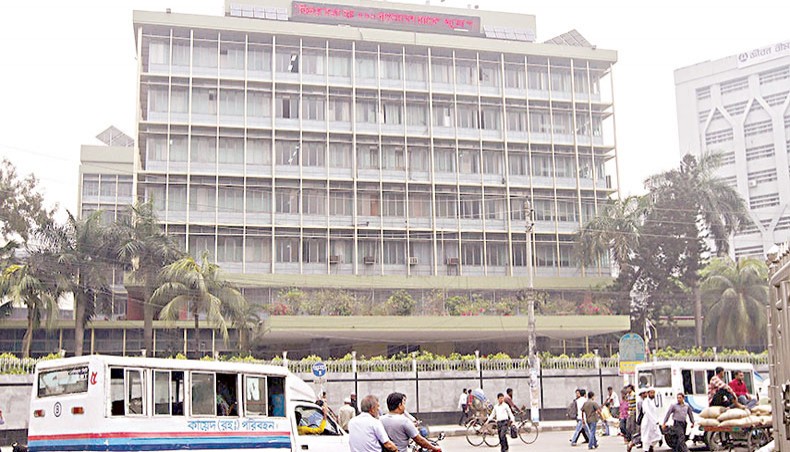Bank owners in Bangladesh put BB, policymakers on trot
Bank owners’ using powers to realise ‘undue’ demands thwarted the role of the Bangladesh Bank while the government’s bailing out the almost bankrupt Farmers Bank, hit by loan scams, set a bad precedent in the ailing banking sector in the outgoing financial year 2018.
Experts noted that FY18 was inauspicious one as both the central bank and the government policymakers had to remain busy amidst wave of demands, including for amendment to the Bank Company Act 1991 and decrease in cash reserve requirement, by the bankers.
They said that the government and the central bank hardly looked at the growing non-performing loans, sanction of loans on political consideration and hostile takeover of private banks.
The government met the bank owners’ demand for deposition of 50 per cent of funds instead of the existing 25 per cent by the state-owned agencies in the private banks despite growing mistrust of private banks due to Farmers Bank’s failure to repay the deposits to the Bangladesh Climate Trust Fund and the Bangladesh Telecom Regulatory Commission.
In the past week, state-owned Sonali, Agrani, Janata and Rupali banks provided Tk 160 crore each and state-owned Investment Corporation of Bangladesh provided Tk 45 crore to make a fund of Tk 715 crore to bail out the almost bankrupt Farmers Bank following government instructions.
Former Bangladesh Bank governor Salehuddin Ahmed said that the banking sector failed to recover from its disastrous position in the outgoing financial year with problems remaining unsolved, no improvement in governance and continued high rate of corruption and writing-off of bad loans.
Criticising the central bank, he said that it bowed down to the pressure from bank owners instead of enforcing banking rules and regulations to protect interest of the depositors.
The bank owners forced the government to meet their demands, including allowing four directors, instead of two, from a family and extending the tenure of directors to three consecutive terms by controversial amendment to the Bank Company Act 1991.
The bank owners also realised their demand for lowering the bank rate to 6 per cent from 6.75 per cent and cash reserve requirement of 5.5 per cent from 6.5 per cent on pretext of liquidity crisis.
Former Bangladesh Bank deputy governor Ibrahim Khaled said that he had never witnessed such using of power by the bankers especially by 5-6 people.
‘This 5-6 people have captured the government,’ he said without naming anyone.
The government met all the demands made by these people although the demands were undue and harmful to the public interest, he said.
Ibrahim Khaled did not think that such measures would help healing the wounds of the banking sectors. Instead, it would aggravate the problems, he noted.
S Alam Group, a Chittagong-based trading house, tightened its grips on Social Islami Bank Limited by purchasing about 50 per cent stake in the Shariah-based bank through 19 companies in October 2017 that experts described as a hostile takeover.
Non-performing loans in Bangladesh’s banking sector surged to over Tk 80,000 crore for the first time at the end of September 2017 from Tk 65,731 crore a year back with a 22.15 per cent hike.
The amount of non-performing loans crossed double digit mark to 10.67 per cent of the total outstanding loans, a sign of weakness of the banking sector.
In April 2018, Centre for Policy Dialogue termed the country’s crippled banking sector an orphan and suspected that a huge amount of money was being laundered from the banking sector through import payments.
CPD distinguished fellow Debapriya Bhattacharya said that the banking sector became an orphan where the protector was abusing the orphan.
The think-tank advised that the government should set up an independent commission to critically assess the problems and weaknesses of the state-owned banks.
The outgoing FY18 could not bring any positive breakthrough for the state-owned banks as defaulted loans in the six state-owned banks — Sonali, Janata, Agrani, Rupali, BASIC and Bangladesh Development Bank — increased to Tk 38,517.32 crore as of September 30, 2017 from Tk 34,580 crore as of June 30, 2017
According to Bangladesh Bank report, the defaulted loan was Tk 13,771 crore for Sonali Bank, Tk 7,599 crore for BASIC Bank, Tk 5,819 crore for Janata Bank, Tk 5,116 crore for Agrani Bank and Tk 4,251 crore for Rupali Bank.
News Courtesy: www.newagebd.net











